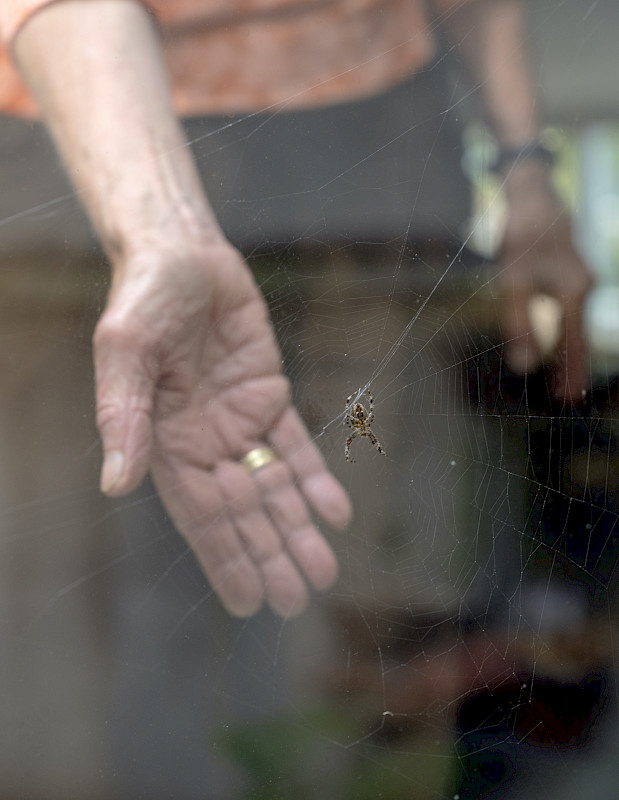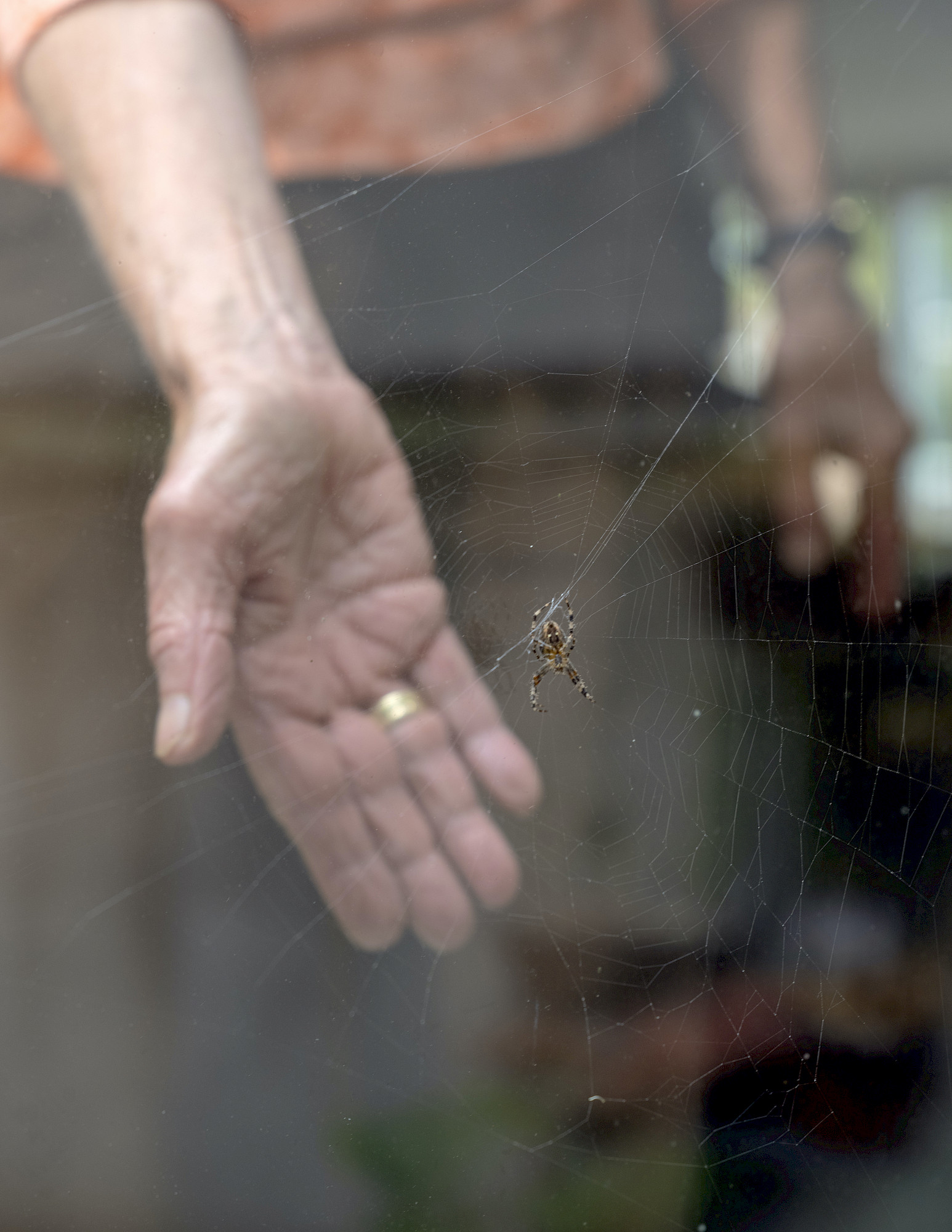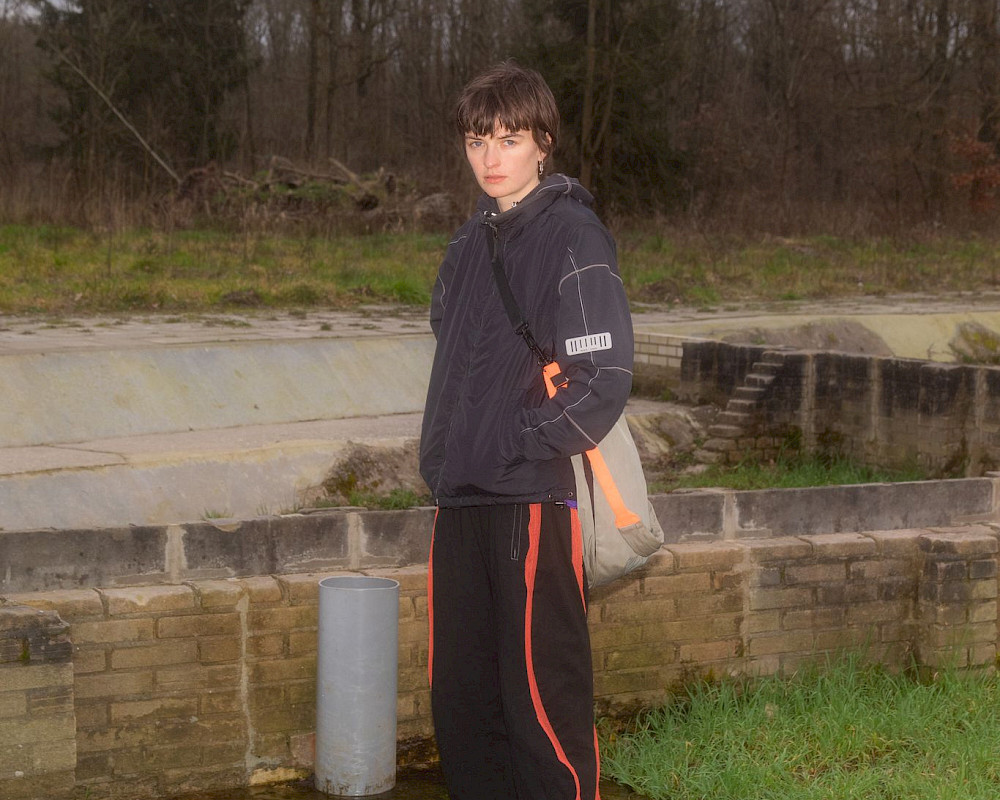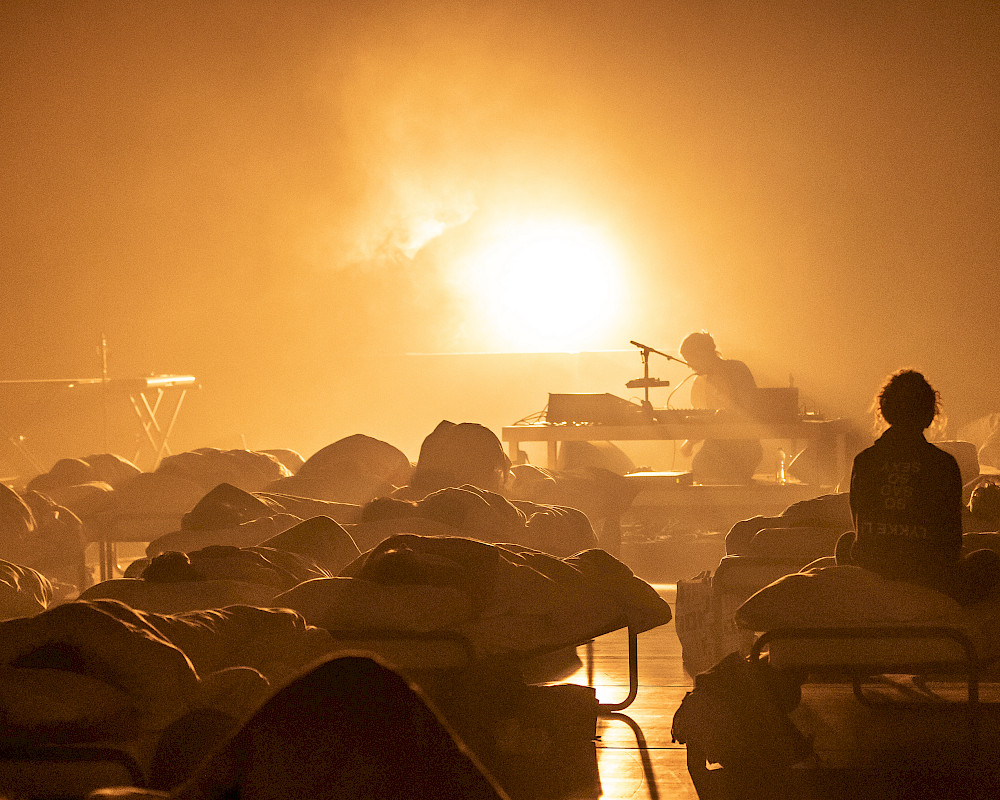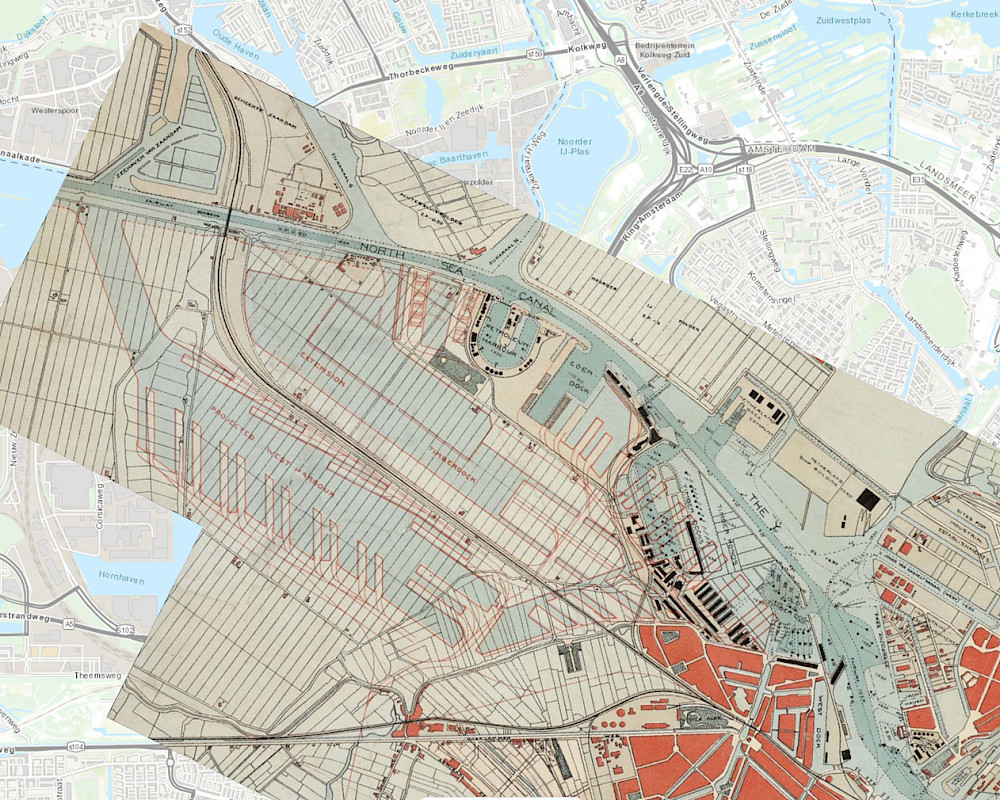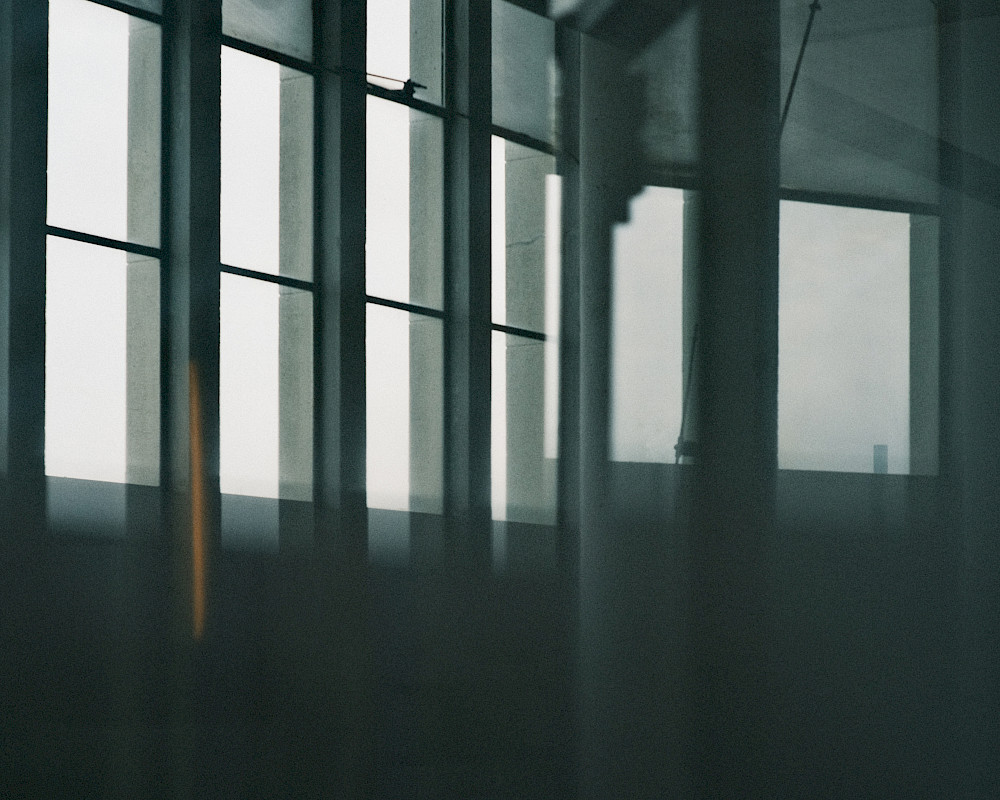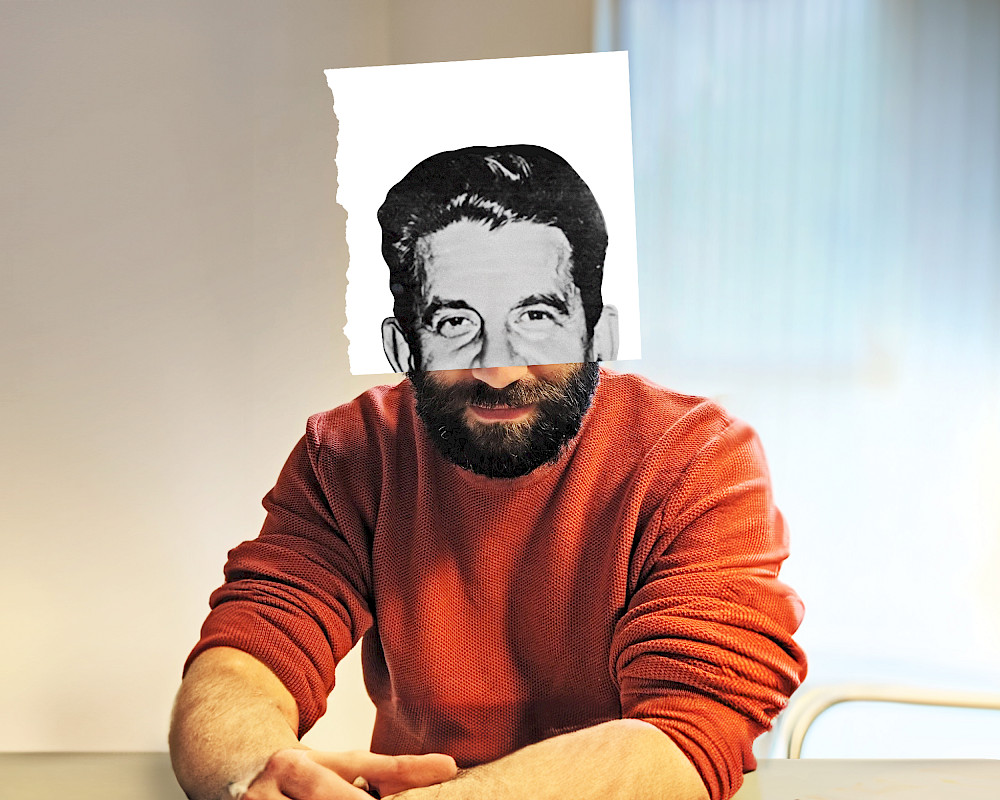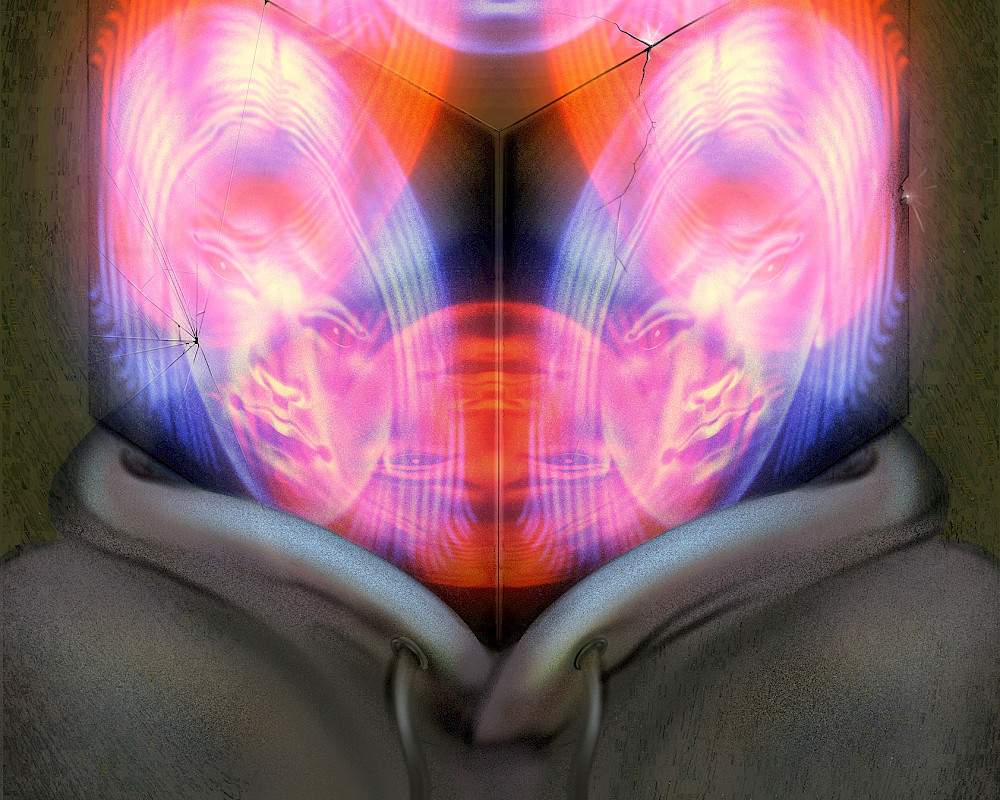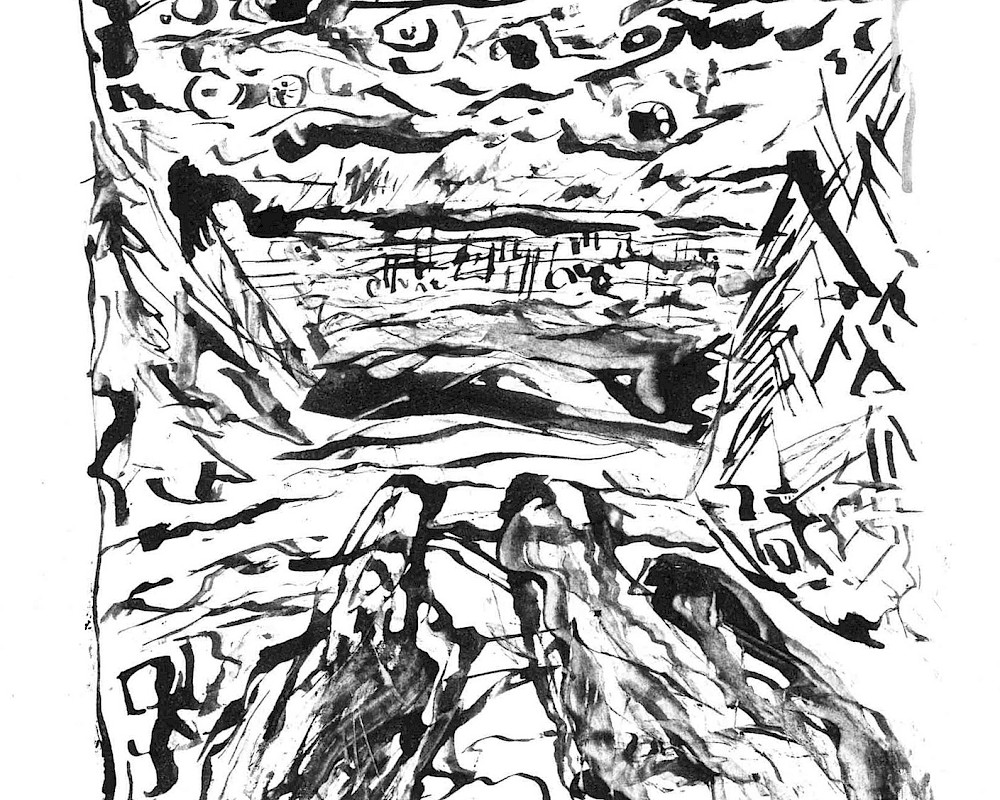interview
Check-in with... Wil Spier
Berber Meindertsma
Berber Meindertsma has been with Het HEM since its founding in 2019. Alongside her responsibilities as development manager, she has curated and cultivated public and community programmes for Het HEM. She continues to develop her own research interests by writing on topics concerning hosting, hospitality and resonance in art.
mind
Check-in with... Stéphanie Janaina
Berber Meindertsma speaks with dancer and choreographer Stéphanie Janaina, almost four years after she performed ¡miércoles! at Het HEM.
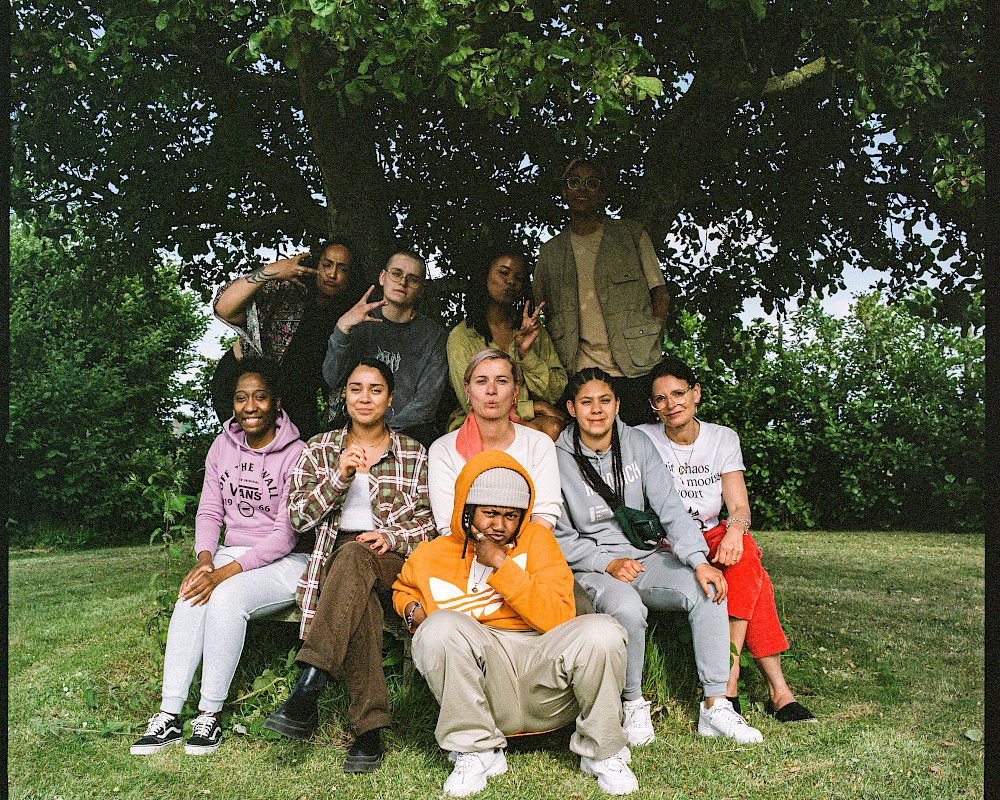
mind
Check-in with… HMTP talents and coaches
After the music video release Vamos by KG and Fabs, a track written during the Homebase Music Talent Programme (HMTP) Writer’s Camp, Berber Meindertsma speaks with them and two of the coaches of the camp.
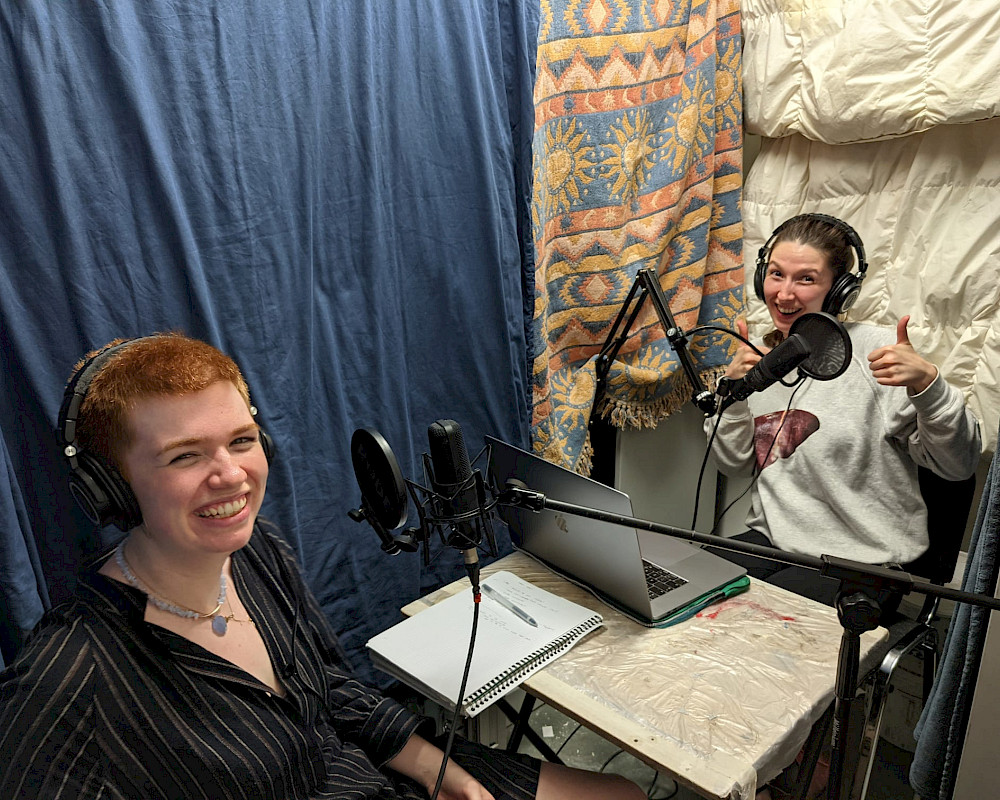
interview
Introducing Future Artefacts FM
From September 2023 to February 2024, The Couch is hosting 4 episodes of the London-based radio show Future Artefacts FM. Together with the first episode, we sit down with the initiators Nina Davies and Niamh Schmidtke to give you the full story behind their radio show.
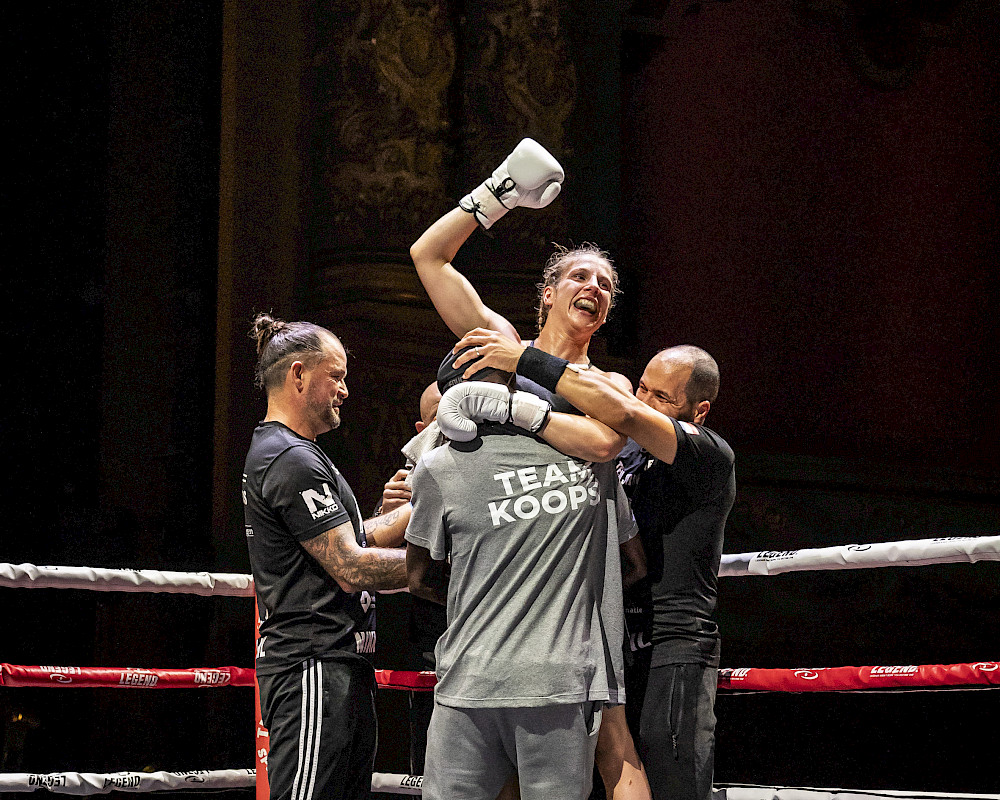
interview
Check-in with... Sara Koops
Ever wondered what boxing is all about, and what art might have to do with it? Sit back and enjoy this check-in with professional boxer Sara Koops, who participated in the Chapter 1NE Box clinic at Het HEM in 2019.
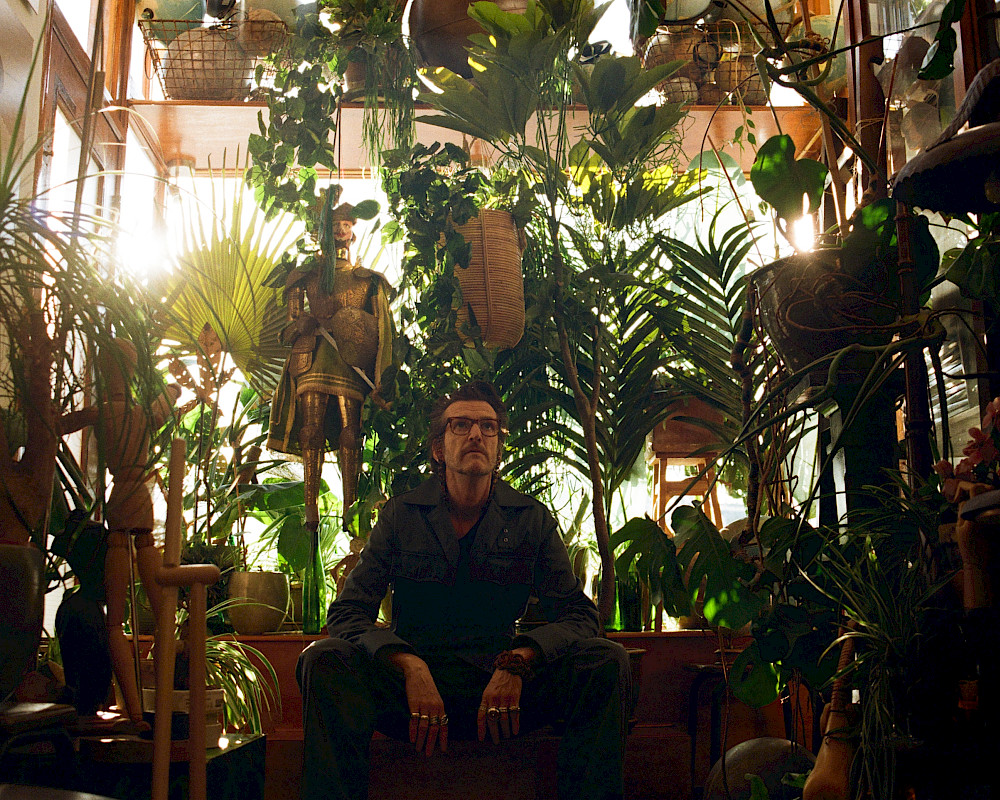
mind
Check-in with... Maarten Spruyt
We sat down and looked back with Guest of Chapter 3HREE Maarten Spruyt, known for his work as a curator, art director and stylist, with an incredible knack for beauty and sensory perception. "I try to make exhibitions which make you look inwards, feel uncomfortable and sit with that for a moment."
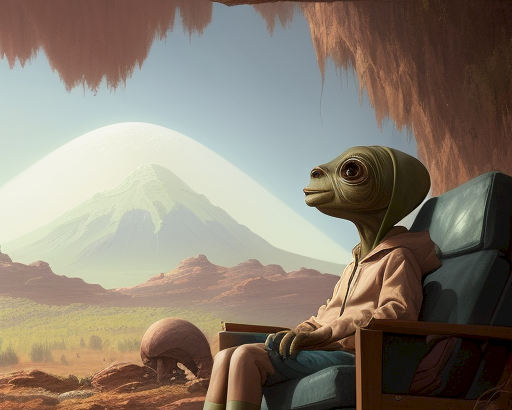
essay
Hospitality on demand
Can the concept of hospitality provide us with a critical lens to explore what kind of relationships socially engaged art institutions can build online ?
12
min read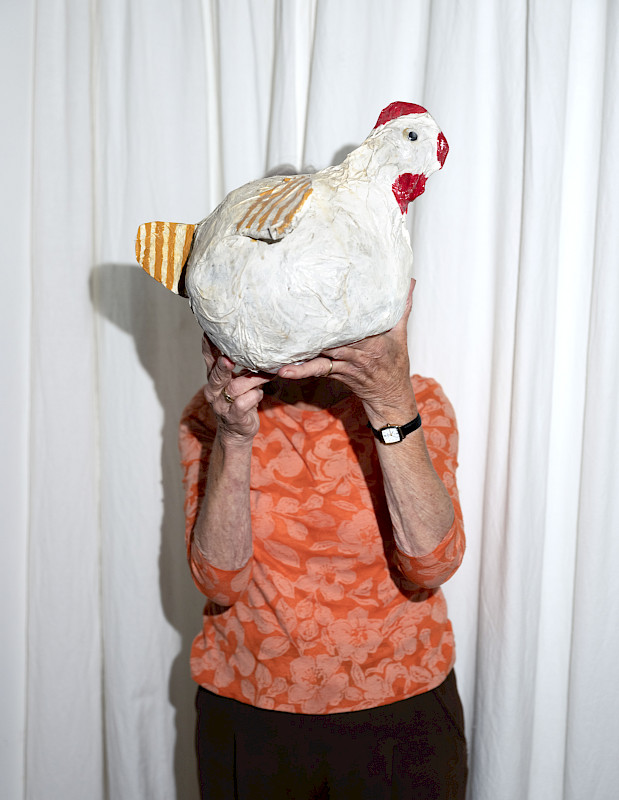
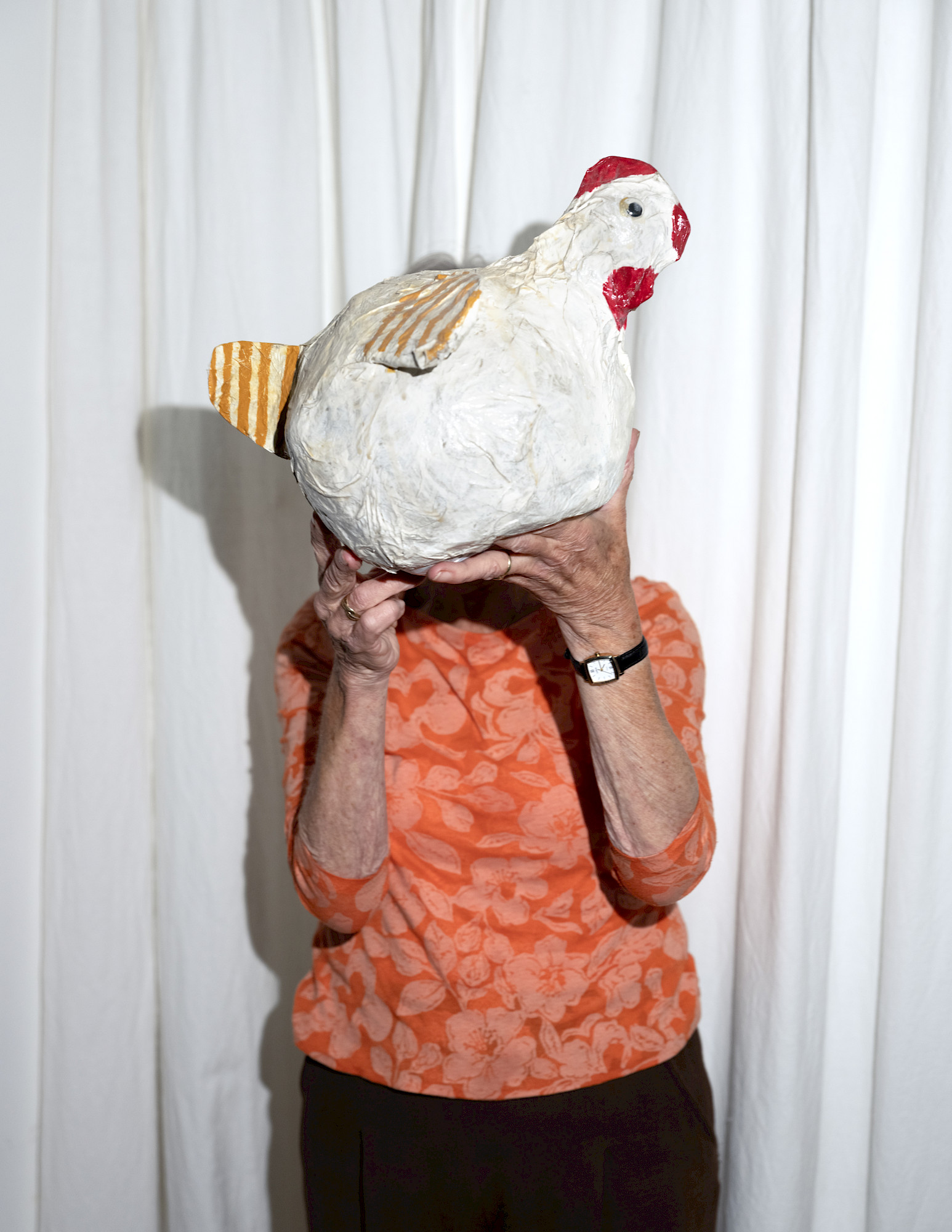
Wil Spier is one of Het HEM’s mediators - the name we give to the diverse group of well-informed hosts who welcome you at the entrance of Het HEM and who can tell you all about our programme and the building. Wil is a retired teacher and is beloved by colleagues and visitors for her sharp witted humour and infectious optimism. At her home in de Jordaan in Amsterdam, we learn more about where her adventurous spirit comes from and what she has been up to now the building of Het HEM is closed.
“My motto at school and in life is: what you do, you should do well, and the other person should not be bothered by it.”
Hello Wil, long time no see! Most people know you as a mediator of Het HEM, but who are you outside of Het HEM? We are now sitting in your domain, and I have noticed already a few things that I’d like to ask you about. First of all, I noticed the quote by Orson Welles in front of your window. What’s the story behind that?
Wil Spier: Every week I put up a different quote by someone inspiring. They almost all have to do with education. This one, “If people are interested, they understand everything in the world. The problem is getting them interested” by Orson Welles relates closely to how I look at life and education. I strongly believe you can do anything once you’re interested. Some are also by my neighbour, a young girl living next door. Or I pick them up on my walks through Amsterdam or Paris. Like this one: “Attendre, c’est toujours attendre l’amour”. I saw that quote in Paris on a building. The next day I wanted to go back to take a better photo of it, but then it was gone! I call it the mystery of Paris.
I love these quotes. But Wil, tell us, how are you and how have you been doing?
Wil: I’m doing well, but I’m not always having a great time. I would like to do something meaningful, something that gives me pleasure and responsibility. I have been raised as a hard worker, and I’m good at it! I like working, it gives purpose. You need to have some responsibility over something in your life otherwise it’s boring. And you also need to dare to go off the beaten track – I like a good surprise! That’s what I loved so much about Het HEM; I needed to excite people and give them an unforgettable and fun time. That’s also what I wanted to achieve when I was working as a principal of a primary school, where I bent the rules a bit.
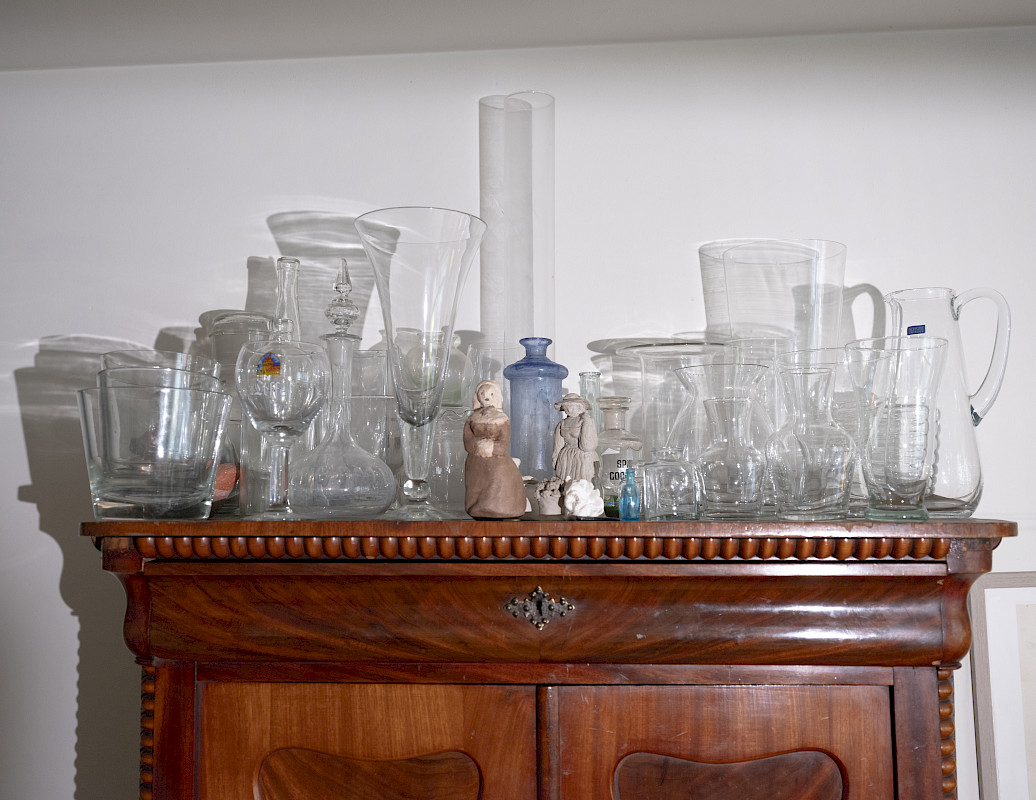
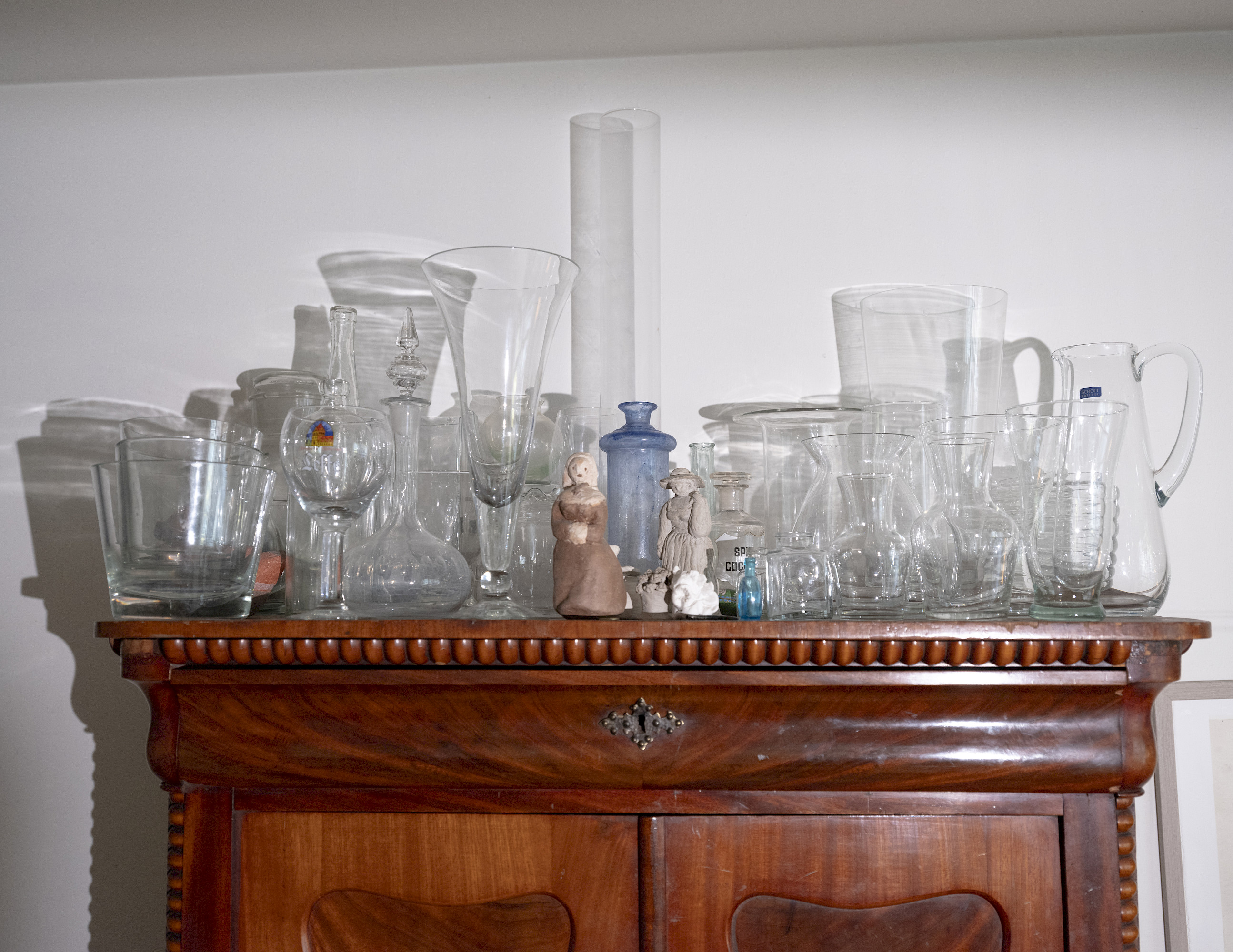
How do you spend your days now?
Wil: I love to go wander around the city or sit here in front of my doorstep, and strike up conversations with people on the street. I also like to go to pubs here around where I live, like het Papeneiland, Café Hegeraard or de Engelse Reet (Pilsener club), and meet people. The hallmark of a pub is that you come not to drink, but to have a good time with others. That’s also why I go; I prefer to go alone, as then it’s easier to have a conversation.
I also often go to Paris. I speak French, so I have to maintain it and I love the relaxed atmosphere there. It has a similar easiness and warmth about it as Amsterdam. But since a few years there is also another reason why I like to go… I have met someone there. He works at a restaurant, which I now always visit when in Paris. We have a very fun flirt going on. He has this spikey hair, and the first night we met, after we had been winking at each other, I gave him a compliment on it. He then asked me if I wanted to touch it. That’s when the flame struck. Whenever I’m at his restaurant, I always take île flottante as dessert, he knows that. And he always pours me a glass of something nice.
Are you actually always the one who starts the conversation or do people also approach you first?
Wil: People approach me as well, but I’m quicker. In a pub in Amsterdam, they for example ask me what I’m drinking, and then I’m telling them that I’m drinking ‘oude jenever’ (aged gin) from Van Wees. A very local drink, which is literally just around the corner from where I live. But you know, I like to make a game out of it. During King’s day I’m out all day and all night on my doorstep. I put a second chair out and make a sign for my doorstep that reads: “Are you up for a conversation or are you a little tired, come have a seat.” I have the most wonderful conversations on that day!
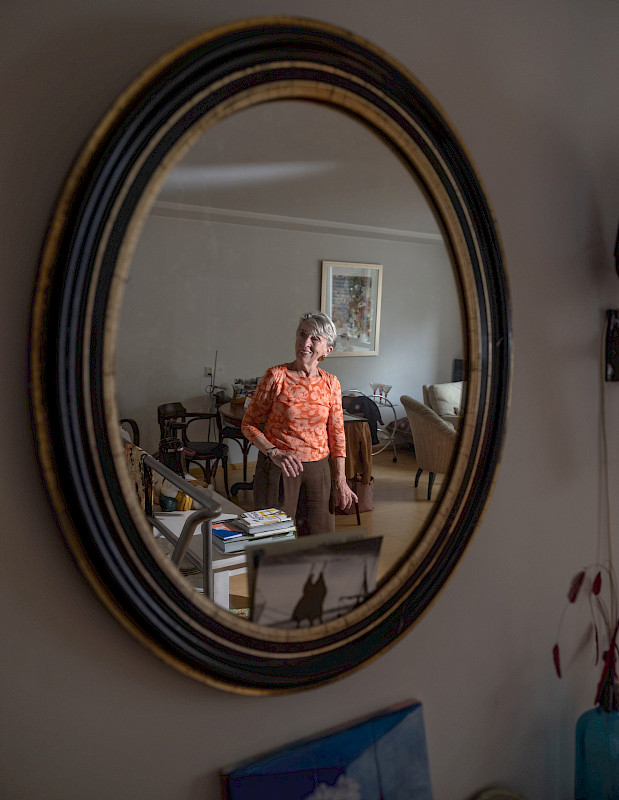
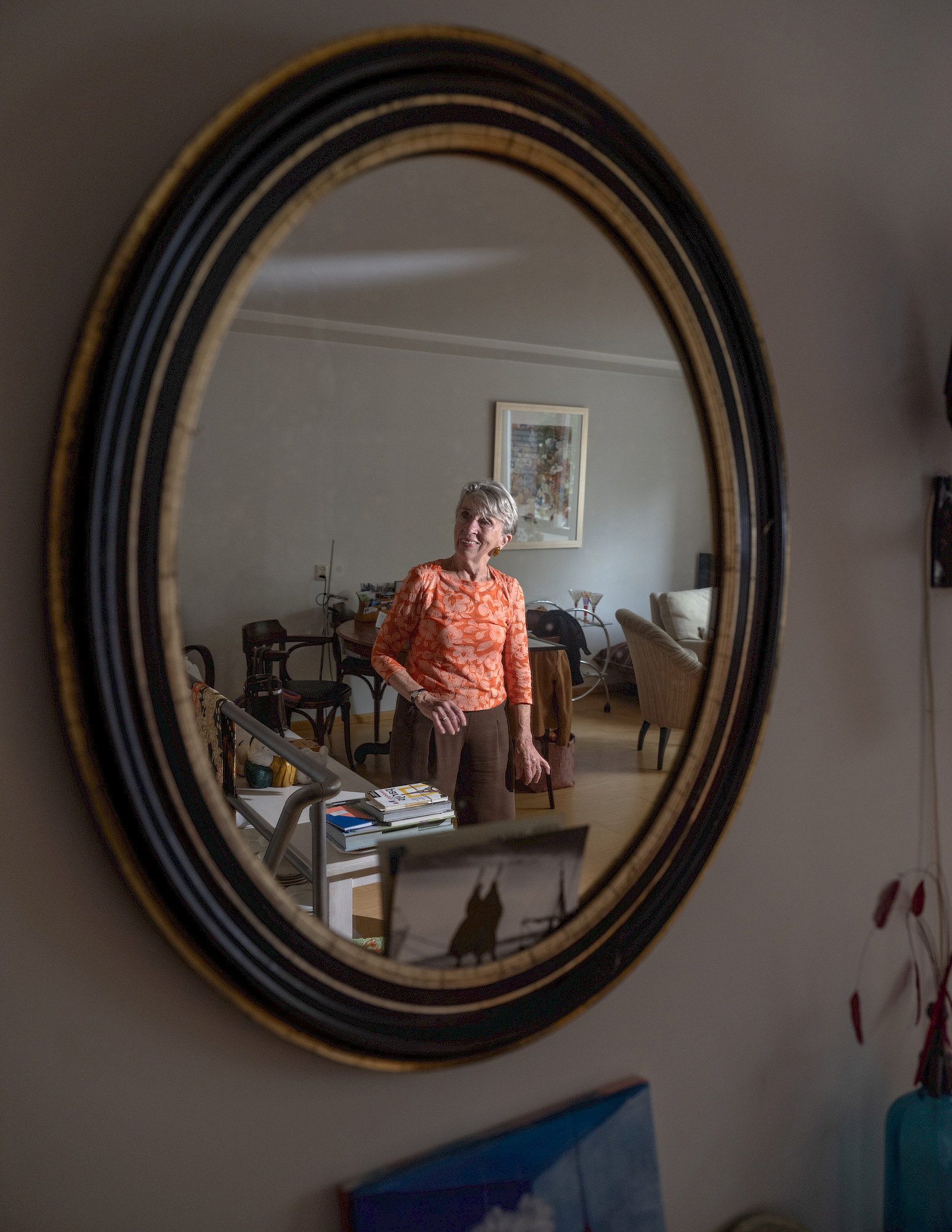
So who was Wil at 18?
Wil: Maybe it’s more fun to ask me who I was when I was 14. That’s when I went to the beach, the movies, or just to town. Everything was more fun than school. I was actually very smart, the best of class at primary school, but this changed when I hit puberty. School just didn’t excite me anymore. I started to spend a lot of time with Henk: a boy at the lyceum in The Hague where we both went to. We fell in love when we were 14 years old and got married at 21. When we were 18, we had one bike together. He would pick me up at my home every day, and I would take care of food for us - his mum didn’t pack him lunch. He was a good student, but I missed a lot of classes. I had to retake some years until eventually I was expelled from school.
Wow, you are full of surprises! Can you tell us more about how you became a teacher and a school principal?
Wil: After I was expelled, the only option that was left for me was to work at nursery school. I had an ok time, as I liked working with children, but I missed being around colleagues who were just as curious as I was about the world. If you don’t study you’re not always around people as eager or curious as you are. I wanted to think outside of the ordinary. Later on with my own son, I saw how you can learn differently. He is very smart, but the educational system didn’t work for him. There was a course I could do to become the head of a primary school. I did that and that gave me the opportunity to take more responsibility and think and do things differently. I started a school in Enschede (the Netherlands) which followed a method of experience-based education from Belgium. The starting point of the school was the question: How can we make education better with more fun? It focuses on the child: each child is different, I love that. I worked there until my husband died and then I moved to Amsterdam, where I became the principal of a school. But you know, I’m more of an animator than a boss. I loved the children and sometimes learned from them.
“If I wasn’t expelled from school, I would have studied Dutch literature. But this direction I took was much more fun.”
Can you elaborate a bit more on that?
Wil: Well, I really like to think about what you can do with children, and what effect that can have on you. One time I had to take over a class of 12-year-olds (group 8 in Dutch primary school system, the last class before you go to high school). It was a riotous class. I asked them what fun thing they wanted to do after we finished the required material: something they could teach me, as I wanted to learn from them. They came up with hip hop classes and organised it themselves– that’s how I learned hip hop! Giving children and young people that kind of responsibility is so important. At nursery school I already asked toddlers to tell me a story. About what they were collecting or what they liked to do. Those kind of things I still do; asking people what they like to do and why. I learn a lot from the stories other people tell me. If I wasn’t expelled from school, I would have studied Dutch literature. But this direction I took was much more fun, I have learned so much along the way.
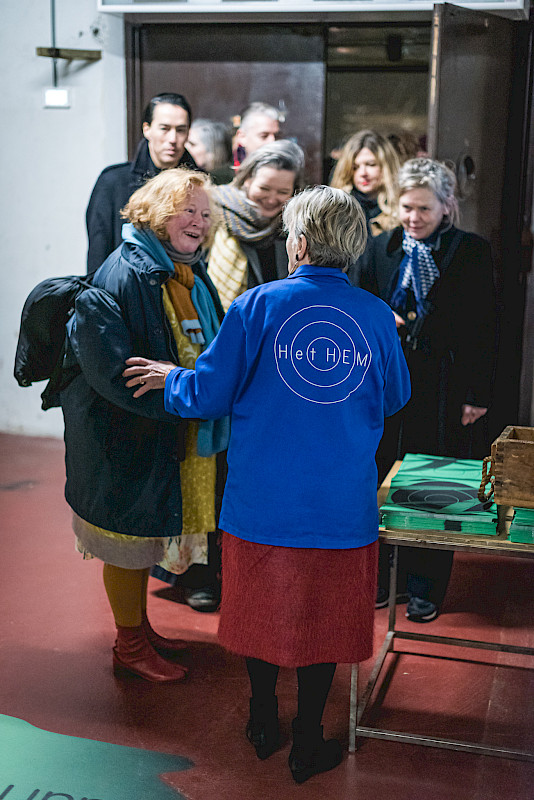
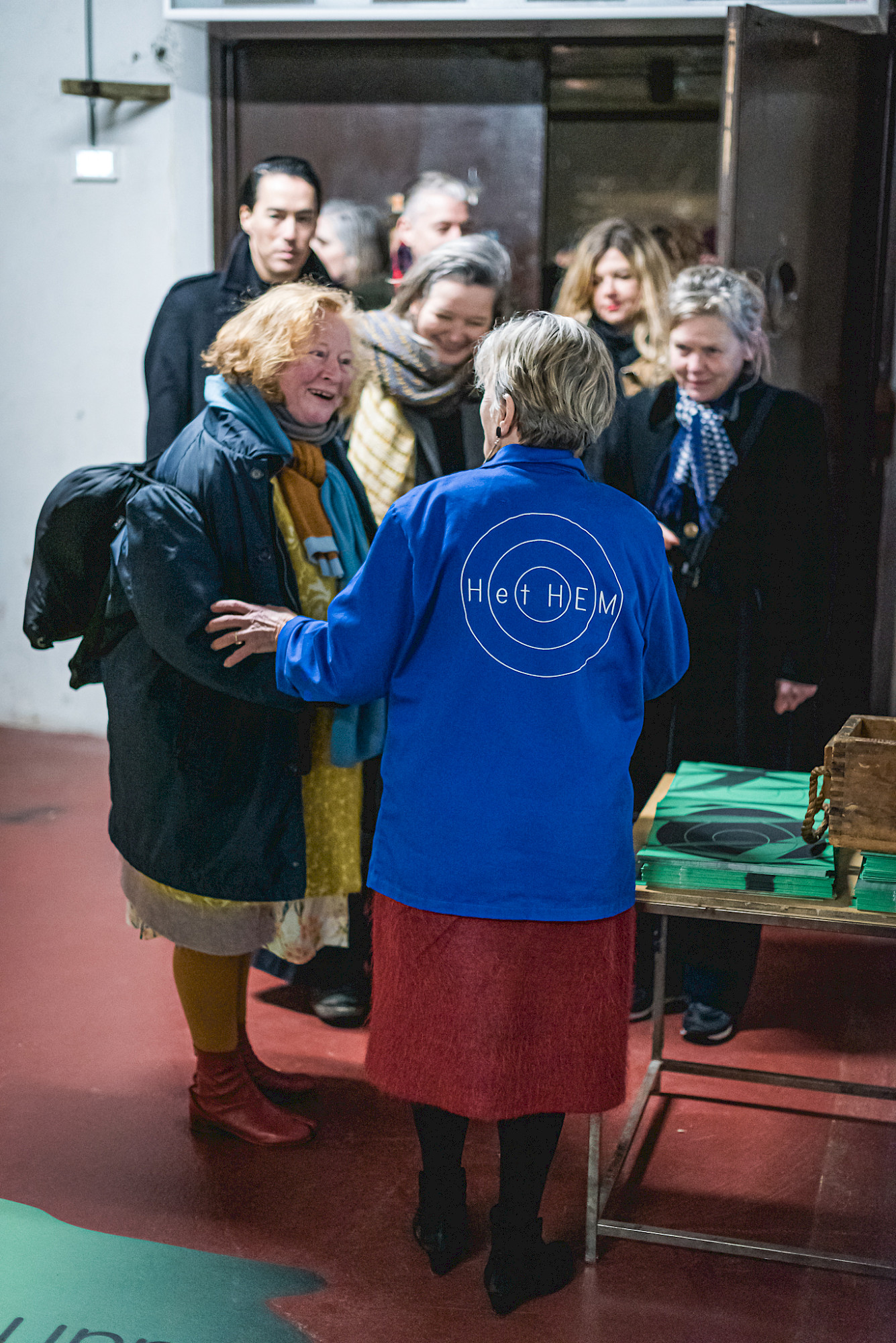
Wil at Het HEM
Now let’s go back to Het HEM and talk about your experiences as a mediator. You’ve been at Het HEM forever, and I can’t imagine Het HEM without you. But how and when did you find us? Since when did you actually start working here?
Wil: Ester (Serrano, Het HEM’s former Head of Communications & Marketing) asked me in 2019, before the official opening of Het HEM. She saw me at work at Eye Filmmuseum, where I am still a volunteer, engaging the audience and asked if I wanted to do that at Het HEM. She told me about Het HEM: a place that’s not a museum, but a big building where new types of art could be presented and be born. It is not something static but vibrant and dynamic. I hadn’t even seen the building yet, but was already excited when hearing this description. Next step was an interview with Kim and Sarah, the directors of Het HEM, where they asked me to present how I would excite an audience for an exhibition. That was easy, as through my teaching I’ve learned to make difficult mathematics exciting for children. When I was working in the bakery of my father, I learned how to sell burned bread to the people. I just said to clients: “It’s your lucky day, the bread is baked twice and you still get it for the same price!”
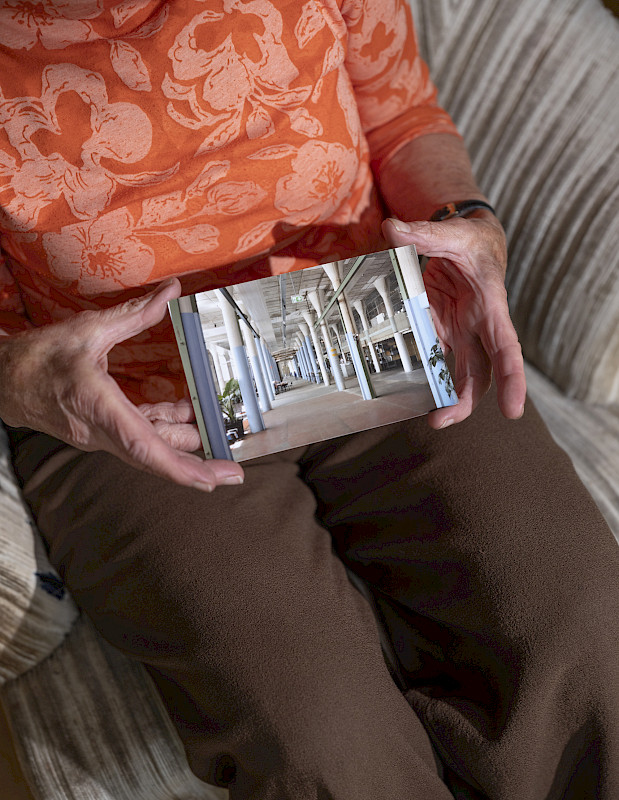
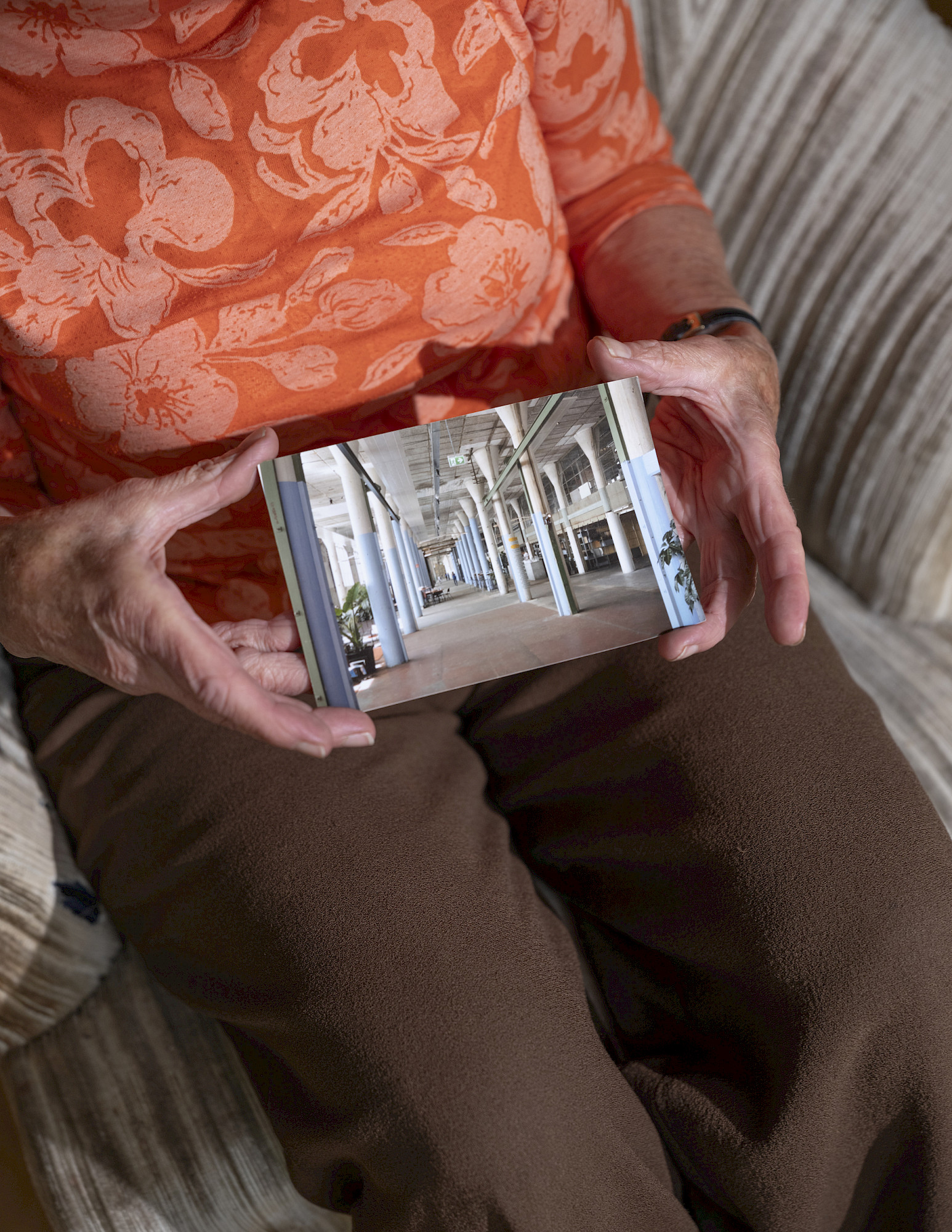
“I miss Het HEM, I always whine about it. Since I started working there, I carry a photo of it with me in my bag, so I can show anyone who doesn’t know Het HEM how wonderful it is.”
What do you like most about being a mediator?
Wil: My quality is that I can make people curious about what’s here. I’m a tastemaker and can feel the temperature in the room. What I like most about being a mediator is that we are a community and a team; together we create the welcoming and homely atmosphere at Het HEM. Every day it is different. I like this surprise, which I sometimes also see in the eyes of visitors. I welcome people asking “Are you lost or did you intend to come here?” Another thing that I love about working at Het HEM is that we have a lot of freedom and we are involved in what happens in the organisation. We are asked to think along, and with that have a co-defining role in what Het HEM should be. That is so special. It has brought me a lot.
You’ve seen so many exhibitions and programmes here. With whom would you like to do a Check in, and why?
Wil: Nicolás Jaar. He was so sweet. He made this ominous sound and light installation in the underground tunnel, and once he came up to me and asked: do people like the work? To which I responded: Yes darling, they love it. It was also my favourite exhibition, because it was such an adventure. I had to prepare visitors for the complete darkness inside and the intense sounds. But everyone came out feeling mesmerised and some even a bit proud of that they overcame something. It didn’t matter what age.
”Leave your museum card at home, just venture outside and go explore.”
If you could be director for a day, or a week, what would you do?
Wil: I have to think about that one for a bit, but I would for example like to create a space, or a moment, in Het HEM for parents and children in a specific age group to play together. The context of Het HEM can be very exciting for children, as well as their parents; it’s a perfect place for them to go on adventure and do something. It could be related to the history of the place, but it doesn’t need to be. Whatever it is, the goal should be that parents really see their children, and the other way around. That’s very important.
Do you have any piece of advice you’d like to share with our readers?
Wil: Look for adventure, go off the beaten track! Leave your museum card at home, just venture outside and go explore. Het HEM has all that.
